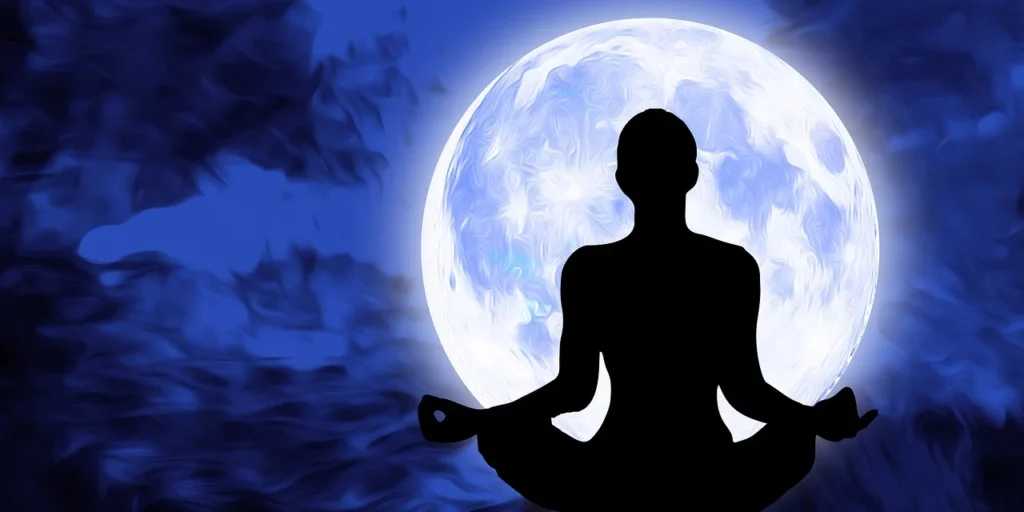Anger
We have all experienced the emotion of anger in our lives and also witnessed the result of it, in this blog we will try to grab a glimpse of how anger affects us and some ways to control our anger. Anger, as defined by psychology, is an emotion characterized by antagonism towards someone or something you feel has deliberately done you wrong. However, Buddhism views anger as an unstable and unpleasant state of mind with negative consequences. In Buddhist philosophy, anger and patience are seen as the problem and solution, respectively. The best way to avoid anger, according to this view, is to cultivate patience.

Why Patience?
Some disturbances are bound to happen as it’s very difficult to completely eliminate our anger, the best solution is to find efficient ways to control it. So what are the ways to control our anger? The practice of patience is one way to avoid it. Patience in Buddhism, is characterized by a stable or pleasant mind. The art of practicing patience is particularly relevant in challenging circumstances when we may lose our patience quickly. Here in the Buddhist context, patience should be practiced in these three conditions which involve:
- Maintaining composure when harmed by others.
- Accepting life’s challenges calmly.
- Practicing moral values with patience.
As Buddha stated:
When faced with someone’s anger,
Practicing patience is a strength,
That benefits both parties.
It is not an act of weakness,
But a demonstration of maturity
Those who are unaware of morality,
May perceive it as cowardice.
The key point of this blog is why anger is detrimental to us and why we should control it. And to Buddhism, the outcomes of anger can be observed in two phases: Those that are unseen and those That are experienced in our lives.
The Unseen Results of Anger.
The unseen outcomes of anger, as described in “The Bodhisattva’s Way of Life” by Shantideva:
Whatever wholesome deeds,
Such as venerating the Buddhas, and generosity,
That have been amassed over a thousand aeons
Will all be destroyed in one moment of anger.
This quote highlights the profound impact of anger, especially directed towards a bodhisattva or someone embodying the qualities of enlightenment and compassion. It suggests that the consequences of such anger are not immediately visible but can result in the depletion or loss of the positive merits accumulated over a thousand lifetimes through virtuous deeds.
There is no transgression like hatred,
And no fortitude like patience.
Thus I should strive in various ways
To meditate on patience.
This quote emphasizes the weakness of anger and the strength of patience. It suggests that hatred, which often fuels anger, is a significant negative force, while patience is a powerful antidote to suffering. The quote underscores the importance of cultivating patience as a means to overcome the harmful effects of anger and hatred. It encourages us to actively seek ways to practice and develop patience at any cost.
We often experience in our daily lives that we lose our temper too quickly and build hatred toward others, which results in fighting and quarreling at traffic signals, public lines, etc. But the practice of patience is effective especially when our emotions and thoughts are unstable. As the saying goes, ‘time heals all wounds’ so we should learn to be patient under such circumstances. Also in reality it is unrealistic to believe that you don’t want disturbance around you, disturbances will be there no matter where you go but the best way to overcome those disturbances around you is by practicing patience which ultimately results in inner peace.


The Seen Results of Anger.
Here, it emphasizes on the outcomes of anger that we could see and experience in our lives. It is also based on the text “The Bodhisattva’s Way of Life” by Shantideva:
My mind will not experience peace
If it fosters painful thoughts of hatred.
I shall find no joy or happiness,
Unable to sleep, I shall feel unsettled.
This quote describes the negative effects of anger on both the mind and body. It illustrates how holding onto anger can disrupt our inner peace, leading to mental and physical discomfort. It says that if you keep painful stuff such as anger in your mind, it can result in:
- The mind cannot be at peace like an ocean without waves.
- You cannot be happy physically or mentally
- Your body and mind won’t be in a pleasant state
- You will find difficulty sleeping
- You won’t be able to control your mind, which ultimately results in an unstabilized mind.
A master who has hatred
Is in danger of being killed
Even by those who, for their wealth and happiness,
Depend upon the master’s kindness.
By it, friends and relatives are disheartened,
Though drawn by my generosity, they will not trust me,
In brief, there is nobody
Who lives happily with anger
This quote illustrates the destructive nature of anger in relationships, using the analogy of a servant and owner. It suggests that even when someone is generous and supportive, if they are consistently angry, it can lead to resentment and a desire to harm the person who is angry. The quote further suggests that anger not only affects the person experiencing it but also impacts their friends and family, potentially causing them to distance themselves. It implies that apologies and offers to make amends may not always be enough to repair the damage caused by anger. Overall, the quote emphasizes the importance of managing anger to maintain healthy relationships.
We have experienced such events in our lives where an angry man ruins the mood of a party or celebrations. Even relationship breaks up due to an angered nature of person in couple. So the very nature of an anger is to separate you from others. In the above para, why did the servant tries to kill it’s owner? Is it because of his helpful nature or because of his anger?
Conclusion
Hence the enemy, anger,
Creates sufferings such as these,
But whoever assiduously overcomes it
Finds happiness now and hereafter.
Anger will always make you unpleasant and it cannot give you a small fragment of pleasant feeling. All the problems that are caused, arise from the enemy known as anger. And if you really want genuine peace then, you should destroy the real enemy within you and practice the art of patience.
Related Video
FAQ
Who is Shanti Deva?
Shantideva was an Indian philosopher, poet, scholar, and Buddhist monk who lived in the Nalanda mahavihara in the eighth century CE. most well-known for being the writer of “Entrying the Path of Enlightenment” and “A Guide to the Bodhisattva’s Way of Life.”
Cause of Anger?
According to Buddhism the main cause of anger is self-centred attitude of I, Me. Which later separates you from your loved ones and others as it is the nature of anger.
What are the consequences of anger?
To Buddhism, the outcomes of anger can be observed in two phases: Those that are unseen and That are experienced in our lives.
FOLLOW US ON




Thank you for your sharing. I am worried that I lack creative ideas. It is your article that makes me full of hope. Thank you. But, I have a question, can you help me?
Your point of view caught my eye and was very interesting. Thanks. I have a question for you. https://accounts.binance.info/vi/register-person?ref=MFN0EVO1
Can you be more specific about the content of your article? After reading it, I still have some doubts. Hope you can help me. https://www.binance.com/register?ref=IXBIAFVY
Kho game đa dạng và hấp dẫn là một trong những điểm mạnh của nhà cái 188v game . Với sự đa dạng của các thể loại game bao gồm cá cược thể thao, Slot, lô đề, game bài,…, bạn sẽ không bao giờ cảm thấy nhàm chán hay tẻ nhạt khi tham gia trải nghiệm. TONY12-30
Your point of view caught my eye and was very interesting. Thanks. I have a question for you.
Can you be more specific about the content of your article? After reading it, I still have some doubts. Hope you can help me. https://www.binance.com/register?ref=IXBIAFVY
Can you be more specific about the content of your article? After reading it, I still have some doubts. Hope you can help me. https://www.binance.com/fr-AF/register?ref=JHQQKNKN